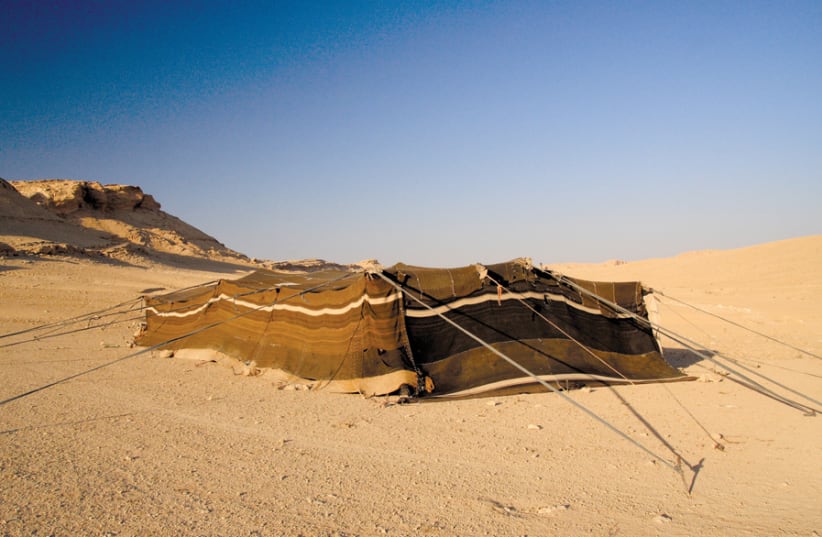The story gets complicated when Balaam, who very much wants to serve Balak, experiences a divine revelation in which he is told he has permission to go to Balak, but that he will not have control over the words that come out of his mouth. He will want to curse, but the words that come out of his mouth will be blessings!
Balaam does not despair, and together with Balak he goes to the peaks of Moab from which he can look out at the Jewish nation’s encampment. There, he tries repeatedly to curse the nation, but, as expected, instead of curses he ends up uttering blessings. Balaam’s blessings are of great significance since he didn’t choose them. Rather, they were “planted” in his mouth by God.
During one of the attempts at cursing, Balaam says the following words of admiration: “How goodly are your tents, O Jacob, your dwelling places, O Israel!” (Numbers 24:5).
Although Balaam’s blessings were not said of his own free will, since his intent was to curse the Jewish nation, they were not devoid of fact. There was something special about the Israelites’ camp that Balaam spoke of so admiringly. What did Balaam see that led him to praise the tents of Israel?
This question was asked in the Talmud, and it seems that the answer given by Rabbi Yohanan, the greatest of sages in the Land of Israel in the 3rd century, was meant especially for us, living in the 21st century:
“He saw that the doors of their tents did not exactly face one another, whereupon he exclaimed: Worthy are these that the Divine presence should rest upon them!” (Bava Batra 60).
Balaam saw the Jewish people’s customs in the spheres of modesty and privacy, and understood that this is the secret of this special nation. In the Israelites’ camp, the tent doors did not face each other, so that each family could have privacy. Balaam understood the significance of this – the Jewish nation is one whose culture does not push to externalize all aspects of life, but, rather, leaves a wide area for people’s private and personal lives.
WE LIVE in a generation that has left us almost completely exposed, and therefore we must learn the limits of suitable exposure. Learning this is particularly crucial for youth. In order to build a stable personality of high quality, a person must learn to respect his own privacy! Excessive extroversion, the sort that exposes details of a person’s personal life, do not allow for introspection or refinement of emotions – processes that are crucial for spiritual development. Ultimately, excessive exposure even leads to greater loneliness!
This is the challenge and responsibility we face now, and we do not have the luxury of shirking it. Every period of time brings its own challenges, and one of the challenges unique to this generation, Generation Z, is acquiring the ability to discern between moments and events that are suitable for exposure and those that should remain intimate and personal.
We must preserve the Jewish nation’s special characteristics and teach ourselves, our children and our pupils how to be worthy of the blessing “How goodly are your tents, O Jacob, your dwelling places, O Israel!”
The writer is the rabbi of the Western Wall and holy sites.
